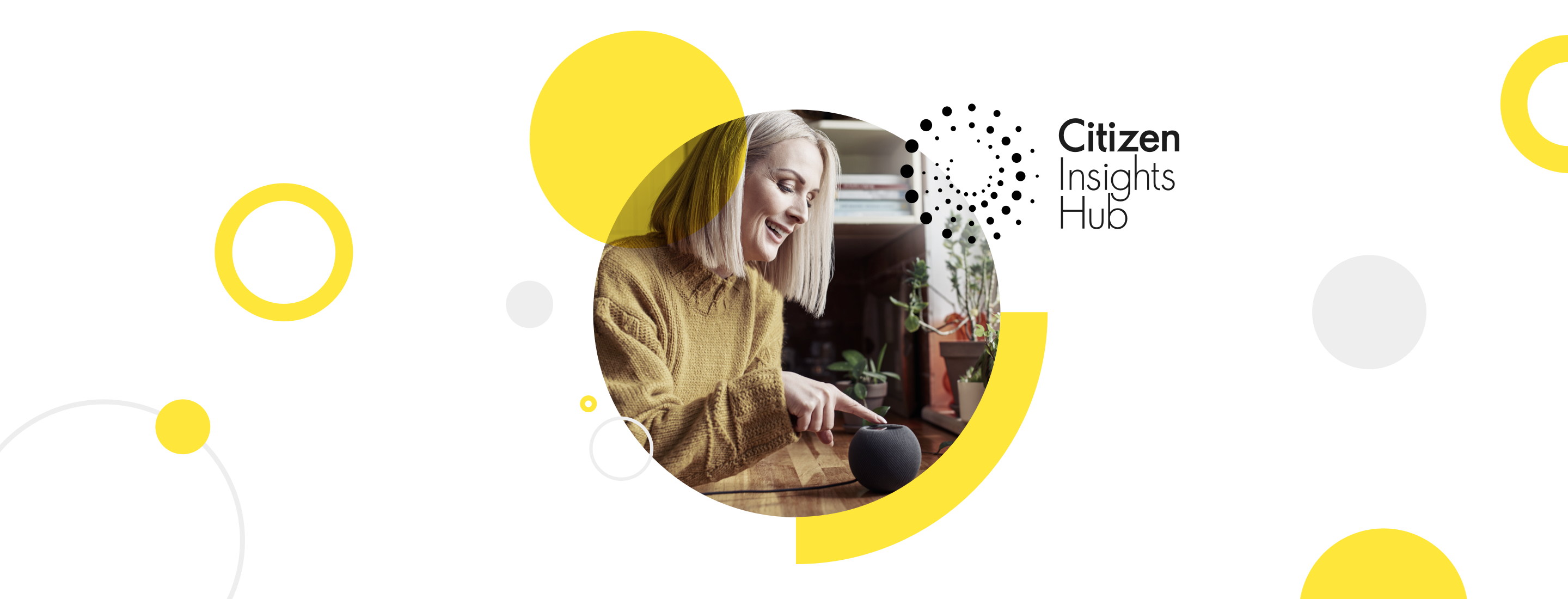Emerging technologies, like mixed reality [augmented reality (AR), virtual reality (VR) and extended reality (XR)], Web 3.0 and digital currencies hold exciting possibilities for digital government in Australia as citizens are more willing than ever to embrace this technology shift. Publicis Sapient Digital Citizen Survey research shows that over half of Australians (63 percent) have practical knowledge of emerging technologies, with 15 percent indicating they have deep knowledge and interact with these technologies frequently.
What issue can we solve for you?
Type in your prompt above or try one of these suggestions
Suggested Prompt



Public Sector
Australians Hungry to Engage with Emerging Technology
Australians Hungry to Engage with Emerging Technology

Most Australians (75 percent) with practical knowledge of emerging technologies expressed that they would be likely to engage with a digital government service using emerging technology platforms.
Australians who report having used a digital government service are also twice as likely to have at least a practical understanding of emerging technology and are more willing to engage via those means if given a chance.
Digital accessibility is the future
There was a significant opportunity to expand these technologies across the most popular digital government services in Australia in 2022—MyGov (56 percent), healthcare (55 percent) and financial services/taxes (45 percent). But first, citizen pain points must be addressed. Currently, the primary barriers to understanding more about emerging technologies amongst Australians are uncertainty about their benefits (44 percent), lack of interest and no relevance to themselves or their needs (40 percent).
There are gender-based and demographic differences too. Women were less likely to have any knowledge of emerging technologies and struggled to cite benefits, with 26 percent being more likely to have no knowledge of emerging technologies, compared to only 16 percent of men. Non-caregivers were almost five times more likely to have no knowledge of emerging technologies compared to caregivers.
Australians who completed education below the university level were also significantly less likely to have any emerging technology knowledge compared to those who had university-level education and above. Households with incomes of less than AUD$100,000 were more than twice as likely to have no understanding of emerging technologies compared to higher income households.
Addressing gaps in service delivery
Digital inclusion—which is closely linked to social and economic self-empowerment—is critical in addressing some of the above challenges. Closing the digital divide is as much about ensuring internet connectivity as it is about addressing barriers to the use of digital services. Digital literacy and skills development must be pursued as a multi-stakeholder initiative that brings all citizens and communities together to serve everyone’s interests.

Currently, digital inclusion remains largely decentralised and inconsistent across government, business and community groups, with each department establishing its own goals and programmes to address the issue.
Combining digital literacy initiatives with omnichannel experiences will allow citizens to engage with government services based on their preferences.
Having a centralised platform with a consistent interface will empower citizens to navigate and receive all kinds of information and services in one common place. Instead of developing numerous apps and websites for different services, which could be intimidating to people who are already less trusting of technology, it would be more effective to use the same solution for repeated services. This effective and personalised service delivery will elevate citizen trust and satisfaction in public sector experiences.




